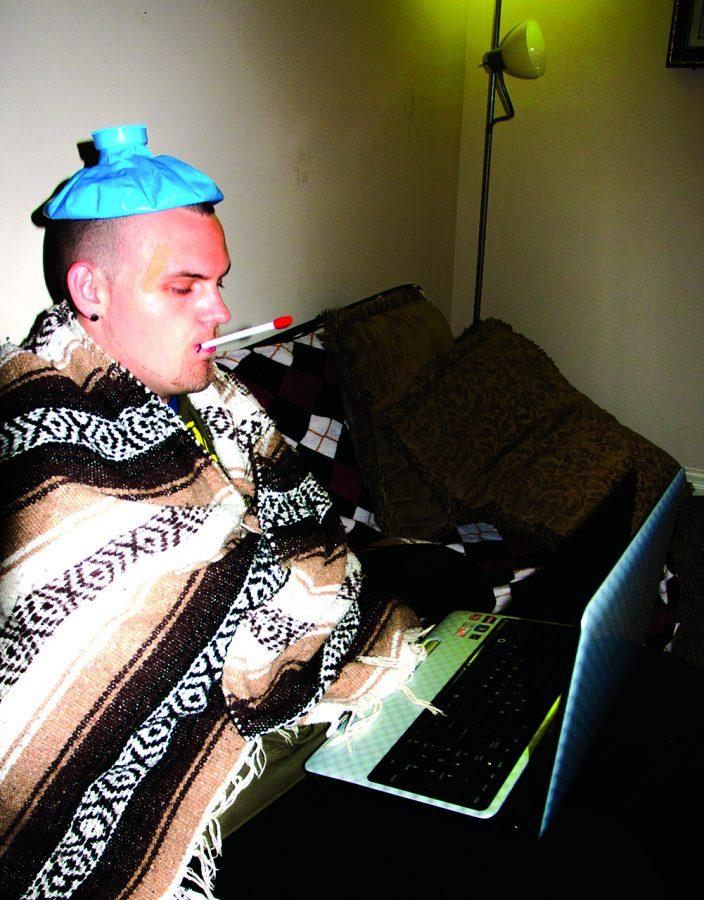Colds plague UNA students throughout fall, winter months
January 23, 2014
With a continuum of colds and flus and the weather’s inconsistent games, students must strive to keep good health.
“I don’t notice anything different before I get a cold,” said junior Kendall Jackson. “It’s kind of random for me, but usually I can feel something coming on when I get a sore throat.”
Symptoms of a cold are caused by pathogens attacking the various cells, said Melissa Ward, nurse practitioner at Bennett Infirmary.
“Colds are caused by a virus,” Ward said. “There are currently over 200 types of viruses. What happens is that the virus attaches to the cells that line the throat and nose, and it causes the symptoms that you see, such as a sore throat and aches.”
Usually the most diagnoses for colds are around fall as well as the winter season, Ward said. There is a high probability that it is most likely because students are out in the elements more and are also around many other sick people, she said.
“We probably average 30 to 35 visitors a day,” Ward said. “I would say that probably 85 percent are from colds.”
Freshman Alex McKay said her weak immune system often puts her in the infirmary with a cold.
“I get frustrated (when I feel a cold coming on) because they hinder me from being able to go about my daily life as I please,” McKay said.
To prevent colds, Jackson said he usually tries to eat citrus and drink plenty of fluids.
“I try and shower as much as I can, and I try to get as much rest as I can because that’s what usually causes it,” McKay said. “If I start feeling it come on, I drink a lot of orange juice.”
When trying to prevent colds, freshman Avery Woods said he avoids people completely, especially if they just look sick or are coughing, hacking or sneezing.
The first thing to do when feeling a cold coming on is to spend some time with yourself and get away from the rest of the world, according to health.com. The website also cites drinking generous amounts of fluids and throwing away any used tissues with help for a speedy recovery.
“The number one way to prevent colds is hand-washing,” Ward said. “You should also cover your mouth and nose when you cough and sneeze.”
For more ways to avoid colds, visit nih.gov.
If showing signs of a cold, visit Bennett Infirmary during the week between 8. and 11:30 a.m.


